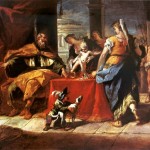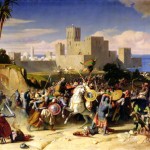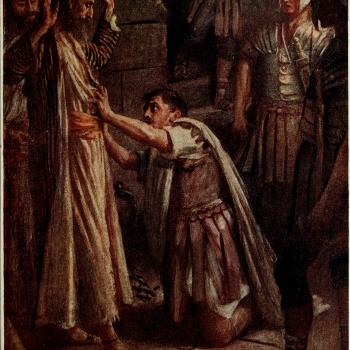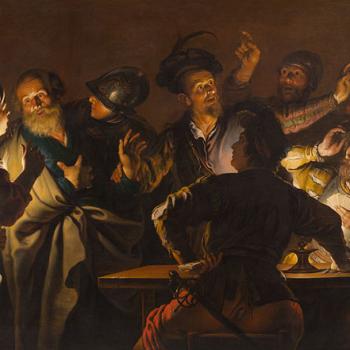Father Dwight Longenecker takes a shot at Protestant conceptions of Scripture with his ten points on the inadequacies of sola scriptura. This is a standard critique among Protestant converts to Roman Catholicism (go here for an example — this is only PART EIGHT!!!. Here’s one sample from Longenecker’s list:
8. If the only source for teaching and moral instruction comes from the Bible how are we supposed to answer the questions that arise about things that were never heard of in Bible times? How can the Bible instruct us about important current problems like nuclear war, artificial contraception, in vitro fertilization, euthanasia, gender re-assignment or genetic modification, cloning or a whole range of other modern issues. Only a living and dynamic, Spirit filled authority can sift the facts and come up with the right teaching.
The point that Longenecker doesn’t address is one that even H. L. Mencken saw when he tried to account for the variety of moral systems in the universe. Some ethical schemes might originate from reason, some from intuition, and some from revelation. Protestantism came down on the revealed side of debates when it claim the Bible only as the source of knowledge about God and salvation. If God were not the source for such truth, then how do you know that reason or intuition is not filled with mere pious aspiration?
Longenecker seems to think that the Roman Catholic understanding of the magisterium as a “Holy Spirit filled authority” can provide an ongoing guide to truth. But is the teaching or tradition of the Roman Catholic Church on a par with Scripture? Does papal teaching or a synod’s ruling come with the same kind of authority as the prophets and apostles? Does Father Longenecker think that he has access to an ongoing revelation that is also available to Mormons?
Caricaturing the Roman Catholic view as a version of Mormonism is as easy to do as caricaturing Protestants as Bible thumpers. But the idea that the Bible is unique — which is the basis for the Protestant claim of sola scriptura — is even part of Roman Catholic teaching. The Catechism teaches for instance:
God is the author of Sacred Scripture. “The divinely revealed realities, which are contained and presented in the text of Sacred Scripture, have been written down under the inspiration of the Holy Spirit.” (105)
Would Father Longenecker say that God is the author of tradition? Does the catechism state this explicitly?
The catechism also teaches that tradition depends on the Word of God:
And [Holy] Tradition transmits in its entirety the Word of God which has been entrusted to the apostles by Christ the Lord and the Holy Spirit. It transmits it to the successors of the apostles so that, enlightened by the Spirit of truth, they may faithfully preserve, expound and spread it abroad by their preaching. (81)
I understand that popes teach on all sorts of topics in ways that make little direct reference to Scripture. But if Father Longenecker thinks that tradition gives bishops lots of rope to address any number of circumstances that may arise, his own catechism features the centrality of Scripture to Christianity as a revealed religion that Protestants were trying to protect. Depending on what happens at the next Synod of Bishops, Father Longenecker might want to invoke that kind of protection.
(Image: Fairfield Presbyterian Church, Fairton, Cumberland County, NJ)












